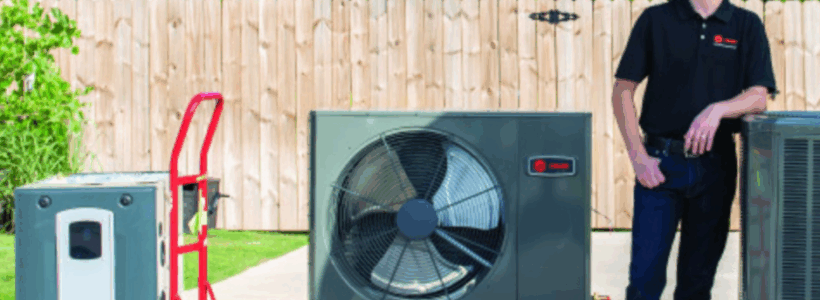Upgrading your home heating system is one of the smartest investments a homeowner in Georgia can make. With rising energy costs, high-efficiency heat pumps and furnaces provide both financial and environmental benefits. Understanding how to save money with HVAC upgrades GA can help you maximize comfort, reduce bills, and take advantage of local incentives.
Understanding High-Efficiency Heating Systems
High-efficiency HVAC systems are designed to use less energy while providing the same or improved level of comfort. For homeowners in Georgia, the focus is often on two main types: heat pumps and furnaces.
Heat Pumps
Heat pumps are versatile systems that provide both heating and cooling. Modern units often meet SEER2 (Seasonal Energy Efficiency Ratio) standards, which measure cooling efficiency, and high HSPF (Heating Seasonal Performance Factor) ratings for heating. Heat pumps work exceptionally well in Georgia’s mild winters and warm summers, offering consistent comfort without high energy consumption.
Furnaces
Furnaces remain a popular choice for heating, especially in homes with colder spaces or older construction. The efficiency of a furnace is measured by AFUE (Annual Fuel Utilization Efficiency). A high AFUE rating means more heat is delivered from the same amount of fuel, which translates directly into savings on your utility bills.
Financial Benefits of Upgrading Your HVAC
Investing in a high-efficiency heat pump or furnace can significantly reduce monthly energy bills. Here is how you can save money with HVAC upgrades GA:
Lower Energy Bills
Energy-efficient heating systems use advanced technology to reduce electricity or gas usage. High SEER2-rated heat pumps and high-AFUE furnaces can lower heating costs by 20 to 50 percent compared to older systems. Over the lifetime of the equipment, this adds up to substantial savings.
Increased Home Value
A new HVAC system can enhance your property’s resale value. Homebuyers often look for homes with energy-efficient systems as they represent lower future expenses and modern infrastructure.
Rebates and Incentives in Georgia
Georgia homeowners can take advantage of local rebates and incentives when installing energy-efficient systems. Programs often offer rebates for upgrading to high SEER2 heat pumps or high AFUE furnaces. These incentives can offset the initial investment and make the upgrade more affordable.
Environmental Benefits
Saving money is only part of the picture. Energy-efficient heating systems also reduce your carbon footprint. By using less electricity or fuel, your household emits fewer greenhouse gases. In Georgia, where summers are hot and winters are mild, efficient systems prevent unnecessary energy waste while keeping your home comfortable year-round.
Energy Efficiency Standards
SEER2 and AFUE ratings are designed to help homeowners choose systems that meet modern efficiency standards. A higher rating indicates lower energy consumption and improved environmental performance.
Reduced Carbon Emissions
By upgrading to an energy-efficient heat pump or furnace, you contribute to reducing air pollution and reliance on fossil fuels. Over the life of the system, your home can save thousands of pounds of CO2 emissions, making your upgrade both cost-effective and environmentally responsible.
Choosing the Right System for Your Home
Selecting the best system for your home depends on your comfort needs, energy goals, and budget. Here are some key factors to consider:
- Climate: Georgia’s mild winters make heat pumps highly efficient, but high-AFUE furnaces may be ideal for homes with larger heating demands.
- Home Size: Larger homes may benefit from zoned heating solutions or systems designed for high-output performance.
- Budget: Consider upfront costs versus long-term savings. Rebates Georgia offers can reduce the initial expense.
- System Compatibility: Ensure your home’s existing ductwork or electrical systems are compatible with the new system for optimal performance.
Maintenance Tips for Maximum Savings
Even the most efficient system requires proper care to maintain its performance. Homeowners can save money by following these tips:
- Schedule annual professional maintenance to ensure optimal performance.
- Change filters regularly to prevent airflow restrictions.
- Seal ductwork to reduce heat loss and improve efficiency.
- Monitor thermostat settings to avoid unnecessary energy use.
By keeping your system in top condition, you can maintain energy efficiency, extend its lifespan, and maximize financial savings.
How to Save Money with HVAC Upgrades GA: Summary
- Install high-efficiency heat pumps or furnaces with high SEER2 or AFUE ratings.
- Take advantage of Georgia rebates and incentives to reduce upfront costs.
- Lower energy bills through optimized heating and cooling efficiency.
- Enhance your home value and appeal to future buyers.
- Support the environment by reducing your household’s carbon footprint.
By making an informed choice and maintaining your system, you enjoy both financial and environmental benefits for years to come.
Conclusion
Upgrading to a high-efficiency heat pump or furnace is a smart choice for Georgia homeowners who want to save money and support the environment. By focusing on energy-efficient heating, understanding SEER2 and AFUE ratings, and taking advantage of rebates Georgia offers, you can significantly reduce energy bills while enhancing comfort. Proper system maintenance ensures long-term performance, making your investment cost-effective for years to come. Start planning your HVAC upgrade today to enjoy financial savings, environmental benefits, and year-round comfort.
Contact us today at Air Pros GA to schedule your consultation and take the first step toward a more efficient, cost-saving HVAC system.
Frequently Asked Questions
2. Can I get rebates for upgrading my HVAC in Georgia?
Yes. Georgia offers rebates for high-efficiency heat pumps and furnaces. These incentives can reduce installation costs significantly.
3. How much can I save on energy bills?
Savings vary based on your current system, home size, and energy usage. On average, high-efficiency systems can reduce bills by 20 to 50 percent.
4. How often should I maintain my HVAC system?
Professional maintenance should be done annually. Homeowners should also replace filters every 1-3 months depending on usage.
5. Is upgrading my HVAC environmentally friendly?
Yes. Energy-efficient systems consume less energy and reduce carbon emissions, making your home more sustainable.





